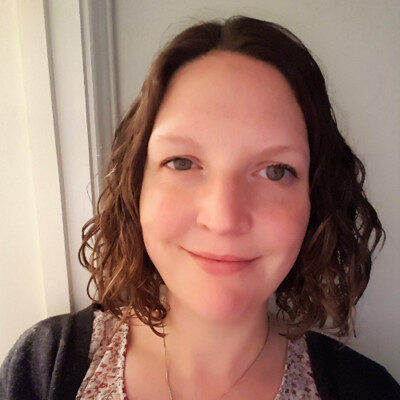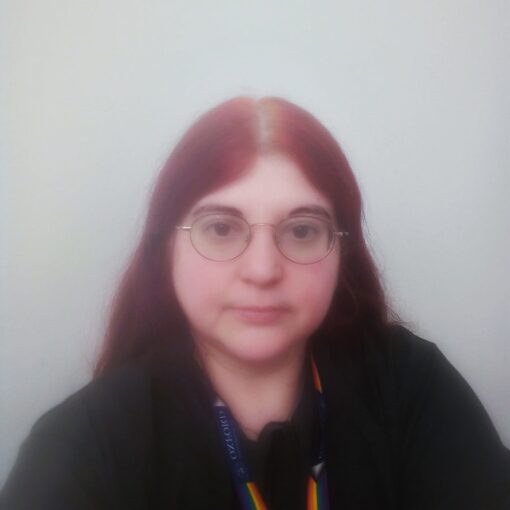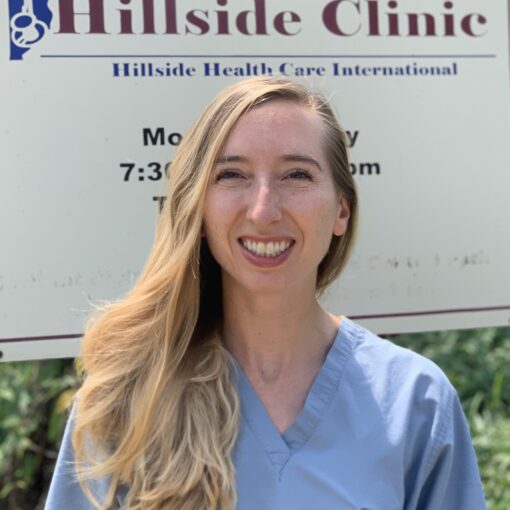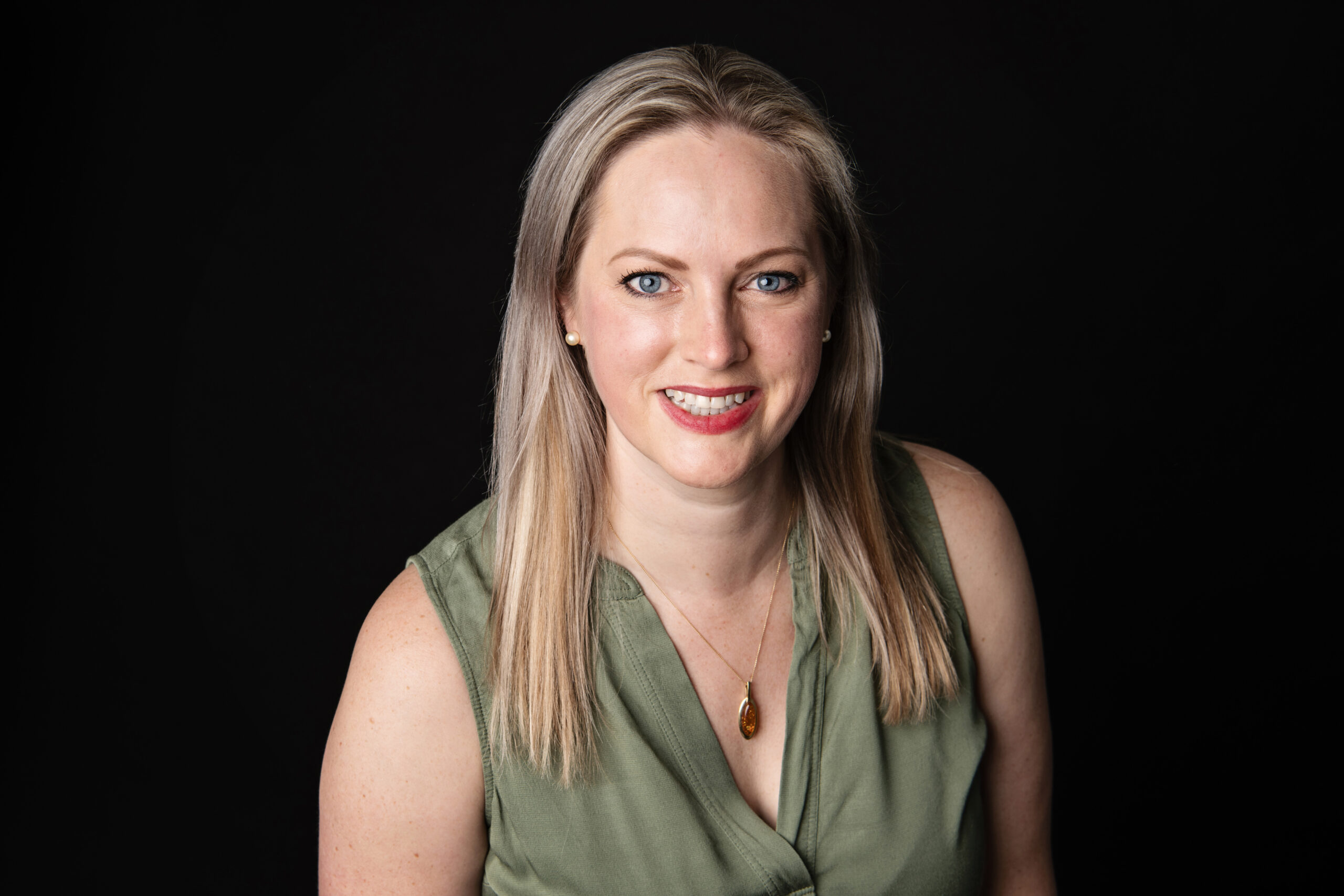PhD, Genetics, MRC Harwell, 2010
| Co-Director of WisbAng Research Development and Research Development Manager | |
|---|---|
| WisbAng Research Development Ltd / University of Bath (UK) | |
Year entered into a non-academic position: 2013
Job highlight: Whenever a researcher tells me my advice made a difference (also when they let me know they have won research funding!)
My research training set me up to… be resilient! It also provided me with experience of project management, supervision, critical thinking and problem solving which have been really important in my career since leaving research.
Left academia after: After 3 years of postdoctoral work
What’s your background?
I did my undergrad degree in Medical Microbiology at the University of Surrey and then a part-time PhD in “the Genetics of Susceptibility to Pneumococcal Infection” while working at MRC Harwell.
Why did you move away from academia?
I had been working at MRC Harwell in the lab for more than 11 years, I didn’t want to stay working as a postdoc for the rest of my career and I didn’t think I had the drive or desire to pursue a lectureship or fellowship. I wanted to be able to use my experience and continue working with researchers but not be doing the research myself.
Is there anything you miss about academia?
No, because I still work with academic researchers – it’s the best of both worlds! My work is varied and interesting and every day is different. Moving out of academia and into my current roles really boosted my confidence and I enjoy working with researchers and hearing all about their interesting project ideas. I used to hate having to do presentations when I was a researcher, I always felt like I didn’t know enough or didn’t have enough confidence to do it – now I will happily stand up in front of a room of academic researchers to run a training course or facilitate a workshop. I like that I get to work with a whole range of research disciplines and career stages, both with large groups of people as well as 1:1. One of the best things about working in Research Development is being able to work with colleagues to solve problems, come up with new ideas and try out new things.
How did you get this job? Did you face any challenges when considering a move away from academia or applying for the role?
I found it quite difficult to move out of research as I wasn’t really aware of alternative careers that I could use my PhD experience in.. I had to do a lot of research about alternative careers, and I started looking at jobs at the Research Councils and then got a job as a Board Manager at a research funder. This was a challenging role (and a bit of a culture change from working in a research lab!) but it was also a great learning experience which allowed me to then move in to a University role in Research Grant Development. This was great as I could use everything I had learned from my time working for a funding agency to then help academic researchers in universities, develop their grant applications.
As well as my current role as Research Development Manager, I am also Co-Director of WisbAng Research Development Ltd which I set up with a friend from work. WisbAng is a research development consultancy that provides services, training, and strategic support to researchers and research support staff. Setting up our own business has been a really rewarding experience and I am enjoying sharing my expertise and enthusiasm for research development with new and interesting colleagues from the UK and other countries.
What motivated you to/why did you choose the sector you transitioned into?
I knew I wanted to stay close to research but not be doing research, so working for a funding agency and then later in and with the University sector has meant that I still get to work with researchers and learn about a wide range of different types of research.
Moving sectors has also allowed me to learn lots of new skills that I may not have had the opportunity to do otherwise.
Did you think you had the skills required for your current position before you started? Were you right?
When I left research and moved to my previous role as a Board Manager I did not have any line management experience or experience of managing a peer review process or board meetings – It was all new to me. I was fortunate that my employer paid for me to do the ILM Leadership and Management programme. I was also very lucky I had a great team to work with and I learned lots from the other Board and Programme Managers. It was definitely a challenge moving into this role and coming from a post doc job, but everything I learned set me up very well for my current roles in Research Development which I really enjoy.
How did your PhD prepare you for your current job? For example, what were the transferable skills that you developed during your PhD that are most relevant to your current job?
Project Management (particularly large group and multi-group projects), data analysis, writing and presenting skills, critical thinking and problem solving, willingness to try new things and a desire to continue learning every day as well as an understanding of the research landscape and pressures on academic researchers.
Did you have any preconceptions about your sector that proved to be wrong?
I’m not sure, it was very different to doing my PhD and postdoc but this wasn’t unexpected. Working at a funder felt a lot more corporate or formal than working as a researcher, whereas working as a research development professional with academic researchers is a happy medium for me.
Can you describe a typical week in your job?
Every day is different but an example week may involve some or all of the following: developing, organizing or running a training course or facilitating a workshop, reviewing grant proposals, meeting with academics to discuss their research proposals or funding plans, running a pitching session, developing or running a managed selection process for a funding call, delivering information sessions, attending research committee or working group meetings, writing papers for committee meetings, horizon scanning for funding opportunities, doing mapping or portfolio analysis, working on strategic projects, meeting with Directors of Research to discuss department peer review or development activities, contacting funders, running mock interviews for fellowship applicants, attending grant writing meetings with academic teams, brainstorming ideas for new activities with colleagues etc.
In addition to the above I also run WisbAng Research Development Ltd with my friend Caroline. We provide training courses, facilitated workshops and strategic projects for institutions, researchers and research office staff.
What is the workplace culture like? Please include comments on work-life balance, flexibility, remote working?
Research Development is a really busy role and there is always a lot of work to do. There is no quiet period in the academic year for us. I find it difficult to separate work and home life but I think that is me personally as I will often choose to work late at night but there isn’t the expectation to do this, it’s just that there is lots to do and I enjoy the job. It has become much more flexible since the pandemic began and now I generally work from home 3 days a week which I prefer as I am more productive at home.
Do people with a PhD frequently get hired in the company/sector?
Yes – there are a lot of people with PhDs in Research Development (it isn’t an essential requirement for the job, but it has helped me).
What are your favourite parts of your job?
The variety of work and the different people I get to work with. I also love a good brainstorming session to come up with new activities that we could develop to support researchers.
What are your reflections on your career path?
I think I was clueless about my options when I was doing my PhD and post doc so I felt a little trapped, thinking there wasn’t anything else I could do with my experience but also knowing I was never going to be a top academic. I think it’s important to provide advice and information to PhD students and postdocs on the options outside of academic research. For some people research is an amazing career, but for me, moving out of research was the best career choice (although I am grateful for all the things I learned and experienced in my past life as a researcher).
Do you have any advice for current graduate students and postdocs considering a career outside of academia?
If you are in a University or institution which has professional services departments, have a look at the types of jobs available (there are lots of people with PhDs in these types of departments and a wide range of jobs). Speak to people who have made the transition and see if you can attend any webinars or workshops about alternative careers in science – if there aren’t any where you work, organize your own and invite speakers to come and share their experiences and the range of jobs available. Once you have an idea of the type of job you want to go for, do a gap analysis to identify areas that you might want to get experience or training in. Think about whether there are any opportunities within your institution to get experience or training in skills you may need. Don’t underestimate the transferable skills you have from your research career too (and get advice on how best to present these in your CV and job applications). Finally, when you get invited to an interview, get a small group of people you trust to mock interview you so you can prepare properly.
What do you know now that you wish you’d known when exploring a transition?
That you don’t have to stay on the “standard” academic research pathway if it’s not right for you and that there are lots of other opportunities if you want to move out of academia (or even if you want to stay in research but want to take a different path).
Can you recommend any relevant resources, organisations or events that might help somebody new to the sector find out more about it?
- Speak to the Careers Advisor at your institution
- Sign up to job alerts for non academic jobs e.g. jobs.ac.uk UKRI jobs (https://www.ukri.org/about-us/work-for-us/find-and-apply-for-a-job/) and other research funders
- Check out university job adverts for non research opportunities
- Have a google for alternative careers eg https://www.prospects.ac.uk/jobs-and-work-experience/job-sectors/science-and-pharmaceuticals/10-alternative-science-careers and https://www.findaphd.com/advice/doing/phd-non-academic-careers.aspx
- Have a look at the Vitae website as there is information on careers both within academia and outside https://www.vitae.ac.uk/researcher-careers
- Some sector associations will have careers events that you can attend for example when I was looking at alternative careers I attended a careers event for medical writing
- If you are currently doing your PhD but are thinking of a career outside academia look at whether an internship or placement may be an option eg in industry, policy etc
 WisbAng Research Development Ltd
WisbAng Research Development Ltd
We provide research development services including training, facilitation, strategy development, and specialist projects for research organisations
Our mission is to promote and support the practice of research development as widely as possible.
https://www.linkedin.com/company/wisbangresdev/ https://www.linkedin.com/in/wisbang-research-development-ltd-b78957208/
Twitter: @WisbangRD





